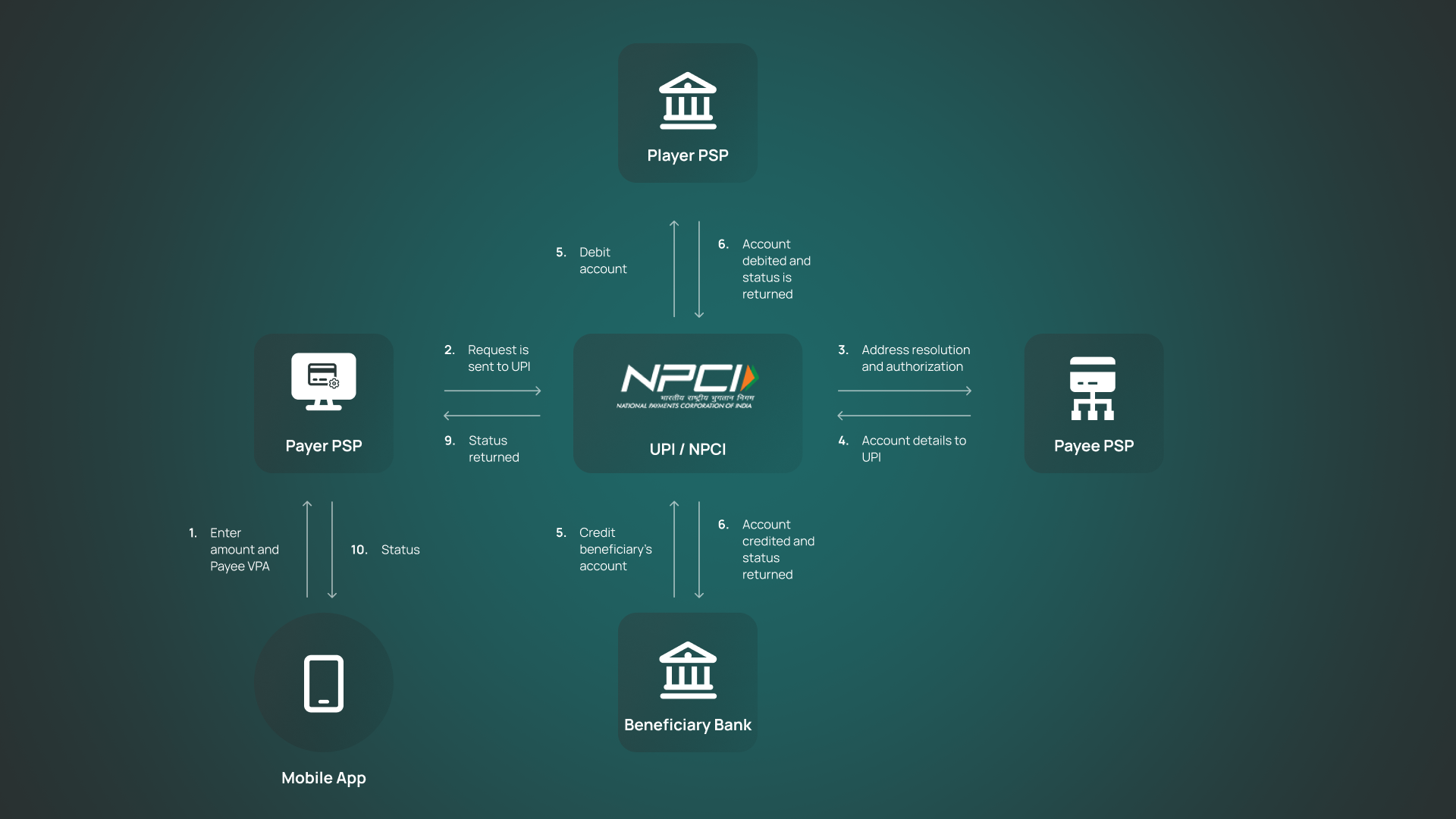UPI
Overview
Sync is motivated by the idea of UPI, a payments based messaging layer that revolutionized India's fintech sector and brought financial inclusivity to millions of Indians.
UPI Statistics
Transaction Volume: In the most recent year, UPI processed over 38 billion transactions, demonstrating its capacity to handle high transaction volumes efficiently.
Transaction Value: The total transaction value processed through UPI exceeded INR 73 trillion (approximately USD 1 trillion), highlighting its significant role in the financial ecosystem.
The Need for UPI
Before UPI (Unified Payments Interface), India's digital payment system was fragmented, with various payment methods not working well together. Users faced problems like limited bank interoperability, complicated transaction processes, high fees, and security concerns. These issues slowed the adoption of digital payments and left many people out of the financial system. To fix these problems and promote financial inclusion,
the National Payments Corporation of India (NPCI) introduced UPI, a game-changing platform designed to make digital transactions easy and secure by acting as a messaging layer.

UPI Features
Interoperability: UPI enables seamless transactions across different banks and payment service providers, breaking down institutional barriers and allowing users to conduct transactions effortlessly.
Ease of Use: Users can link multiple bank accounts to a single mobile application, simplifying account management and the payment process.
Security: UPI employs two-factor authentication and end-to-end encryption to ensure the safety and integrity of transactions, building user trust in digital payments.
Cost-Efficiency: By significantly reducing transaction costs, UPI makes digital payments accessible to a broader demographic, including underserved and unbanked populations.
Real-Time Transactions: UPI supports instant, real-time transactions, enhancing the efficiency and responsiveness of the payment ecosystem.
Conclusion
The success of UPI showcases how a well-designed, user-centric digital messaging layer can transform an entire financial landscape. By addressing key challenges such as interoperability, ease of use, security, cost-efficiency, and real-time processing, UPI has set a new standard for innovation in the fintech sector. Its impact serves as a powerful motivation for developing solutions that can similarly revolutionize web3, leveraging the principles that have made UPI a resounding success.
